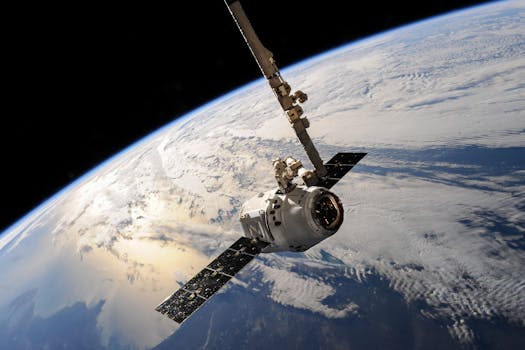The Future of Satellites: Revolutionizing Global Connectivity
The future of satellites is poised to revolutionize global connectivity, enabling faster and more reliable communication networks. With advancements in space technology, satellites are becoming increasingly important for a wide range of applications, from navigation and communication to weather forecasting and Earth observation.

The Future of Satellites: Revolutionizing Global Connectivity
The future of satellites is poised to revolutionize global connectivity, enabling faster and more reliable communication networks. With advancements in space technology, satellites are becoming increasingly important for a wide range of applications, from navigation and communication to weather forecasting and Earth observation. In this article, we will explore the future of satellites and their role in shaping the global connectivity landscape.
One of the key drivers of the satellite industry is the growing demand for global connectivity. As the world becomes increasingly interconnected, the need for fast and reliable communication networks is becoming more pressing. Satellites are playing a critical role in meeting this demand, providing connectivity to remote and underserved areas where traditional communication infrastructure is lacking. For example, satellite-based internet services are being used to connect rural communities, providing them with access to vital information and services.
Advances in Space Technology
Recent advances in space technology have made satellites more efficient, reliable, and cost-effective. New satellite designs, such as small satellites and cube satellites, are being developed to provide more targeted and flexible communication services. These smaller satellites are cheaper to launch and can be deployed in larger numbers, making them ideal for providing connectivity to specific regions or communities. Additionally, advancements in propulsion systems and power sources are enabling satellites to stay in orbit for longer periods, reducing the need for frequent replacement and increasing their overall lifespan.
Another significant development in the satellite industry is the emergence of reusable launch vehicles. Companies such as SpaceX and Blue Origin are pioneering the development of reusable rockets, which can significantly reduce the cost of launching satellites into orbit. This innovation is expected to make satellite launches more accessible and affordable, enabling more organizations and countries to participate in the satellite industry.
Applications of Satellites
Satellites have a wide range of applications, from navigation and communication to weather forecasting and Earth observation. Navigation satellites, such as GPS, provide location information and timing signals, which are essential for modern transportation systems, financial networks, and emergency services. Communication satellites, on the other hand, enable global connectivity, providing internet access, voice communication, and data transmission services.
Weather forecasting satellites are used to monitor weather patterns and predict storms, helping to protect lives and property. Earth observation satellites are used to monitor the environment, track climate change, and manage natural resources. These satellites provide vital data and insights, which are used to inform decision-making and policy development.
Challenges and Opportunities
Despite the many benefits of satellites, there are also challenges and opportunities that need to be addressed. One of the main challenges is the increasing amount of space debris in Earth’s orbit, which can pose a risk to satellite operations and the environment. To mitigate this risk, satellite operators and regulators are working together to develop sustainable practices and guidelines for responsible satellite operations.
Another opportunity for the satellite industry is the development of new applications and services. With the advent of 5G networks and the Internet of Things (IoT), satellites are expected to play a critical role in providing connectivity and enabling new use cases. For example, satellite-based IoT services can be used to monitor and manage remote assets, such as pipelines, farms, and wildlife reserves.
In conclusion, the future of satellites is exciting and full of opportunities. With advancements in space technology, satellites are becoming increasingly important for global connectivity, navigation, weather forecasting, and Earth observation. As the satellite industry continues to evolve, it is expected to play a critical role in shaping the future of our planet and enabling new applications and services.




